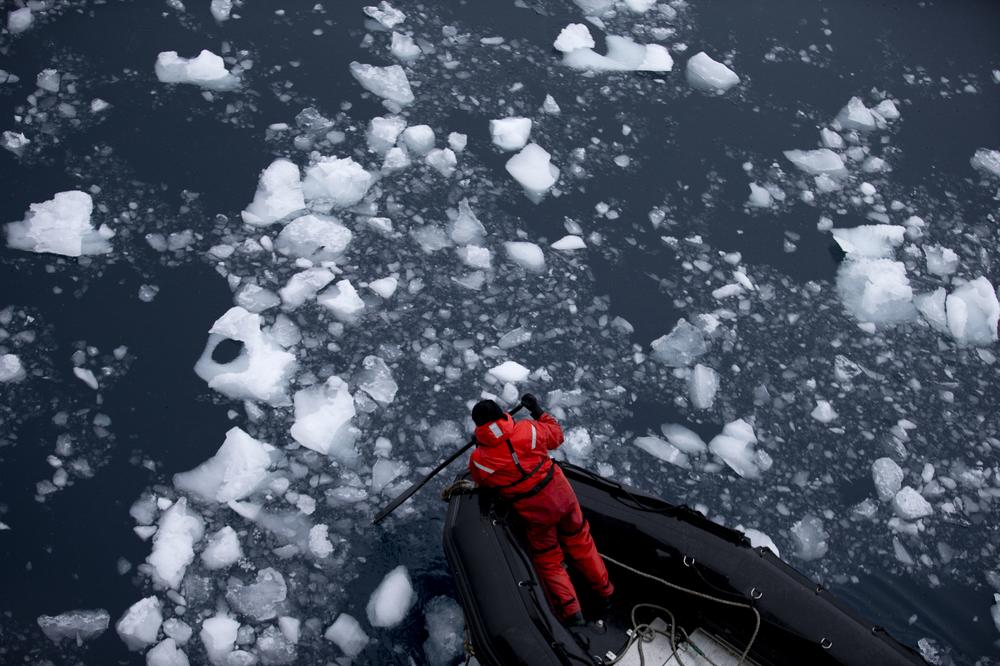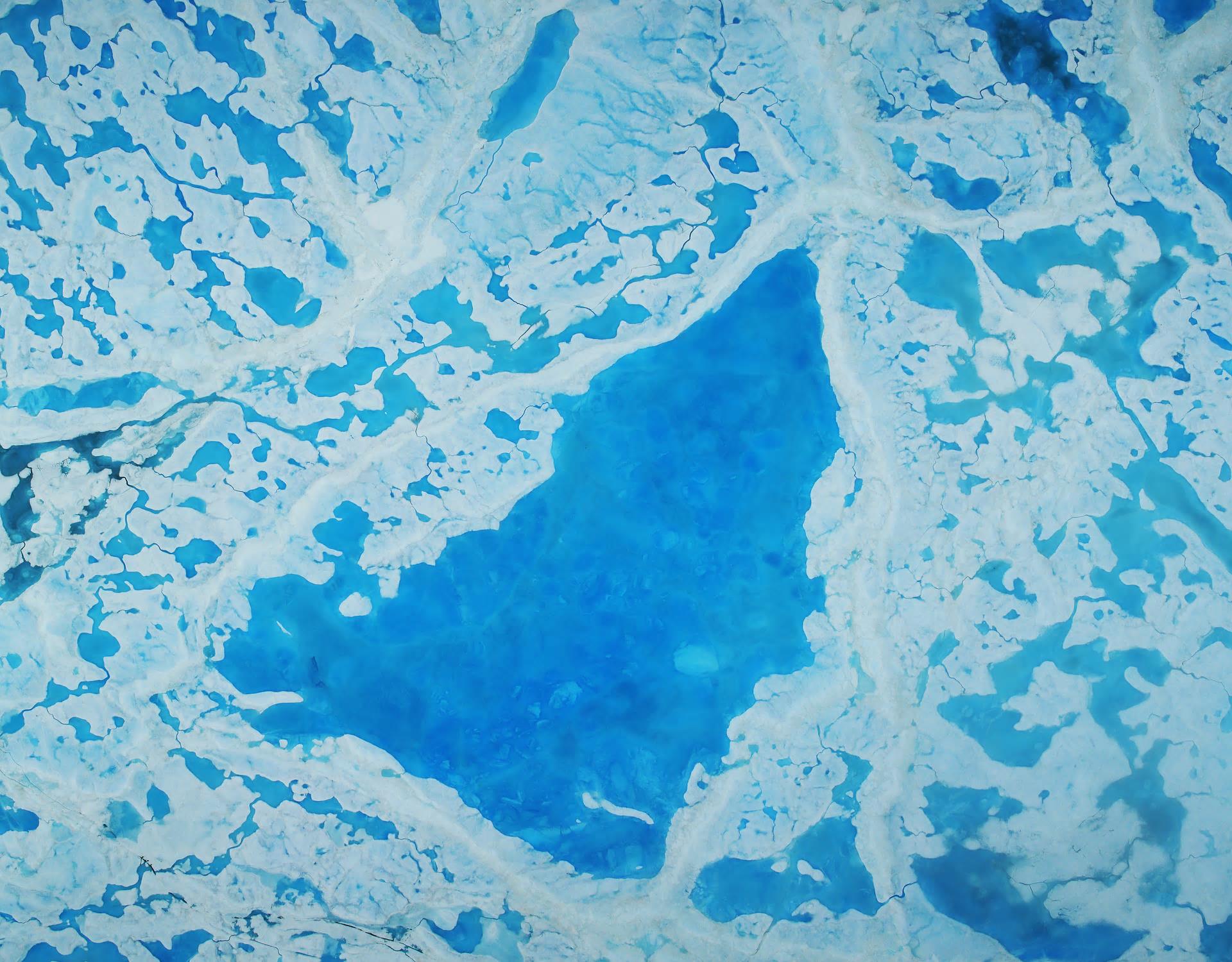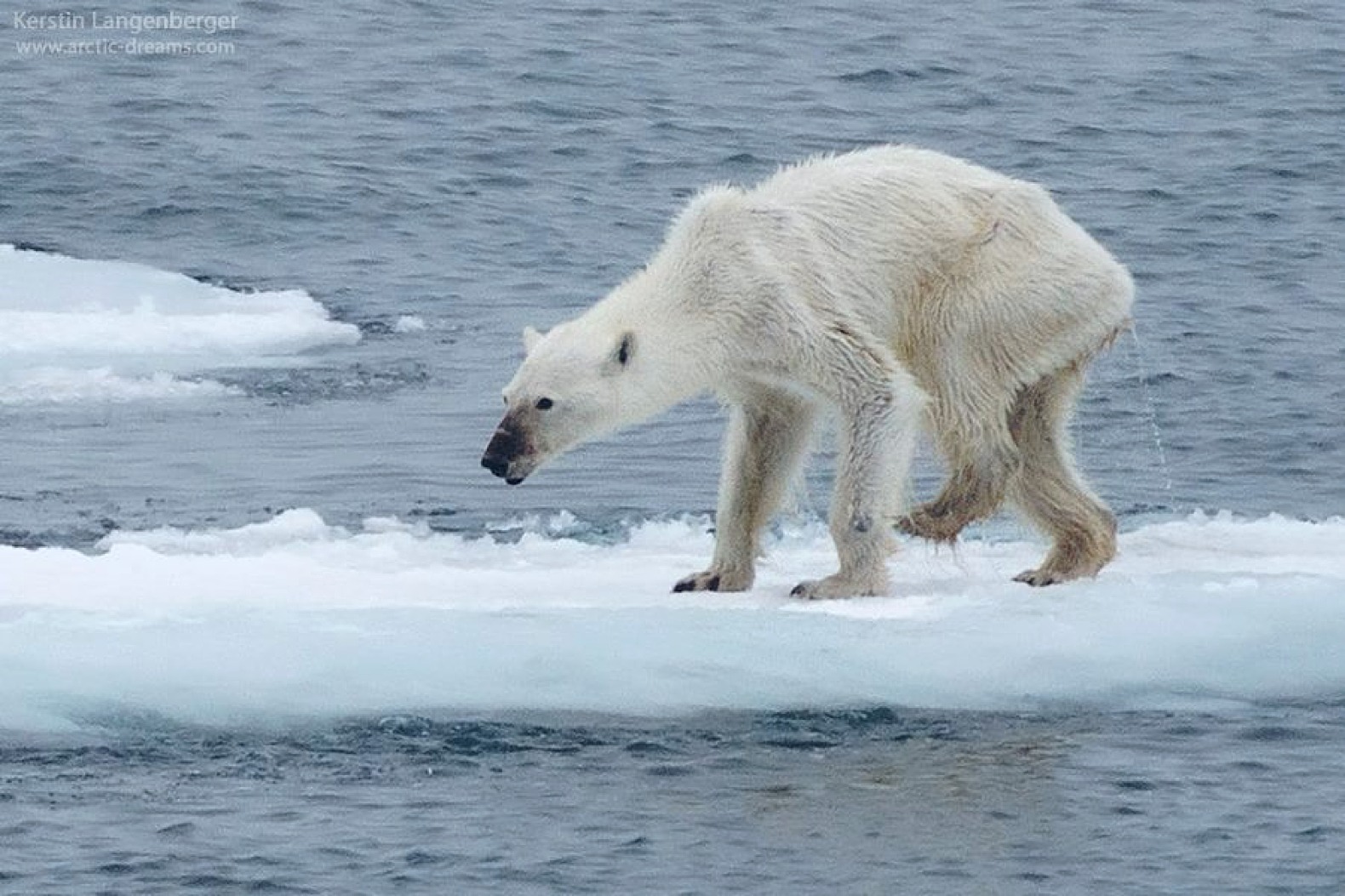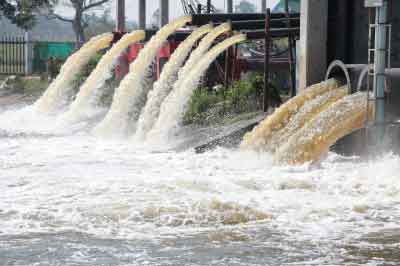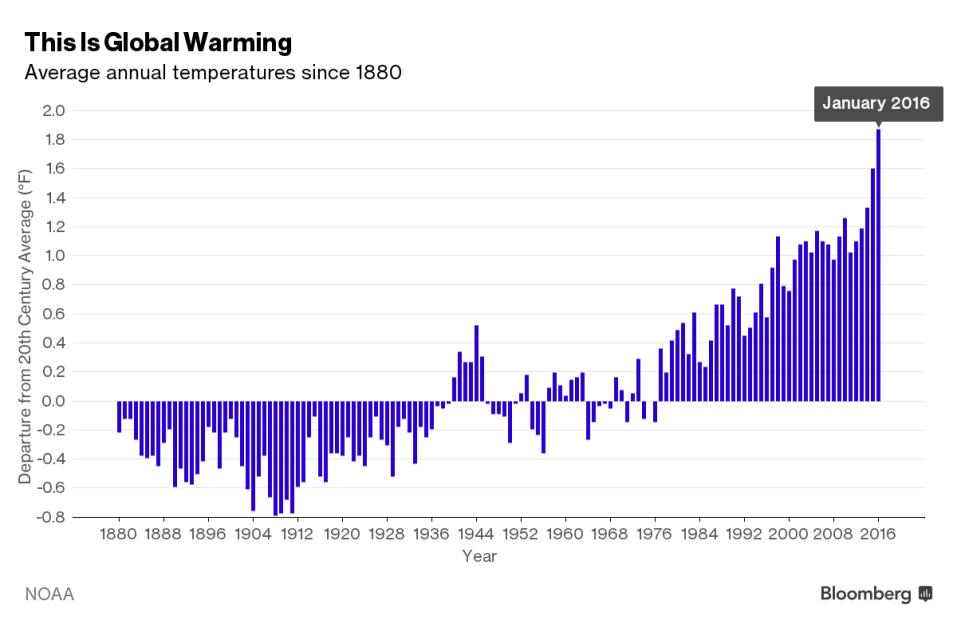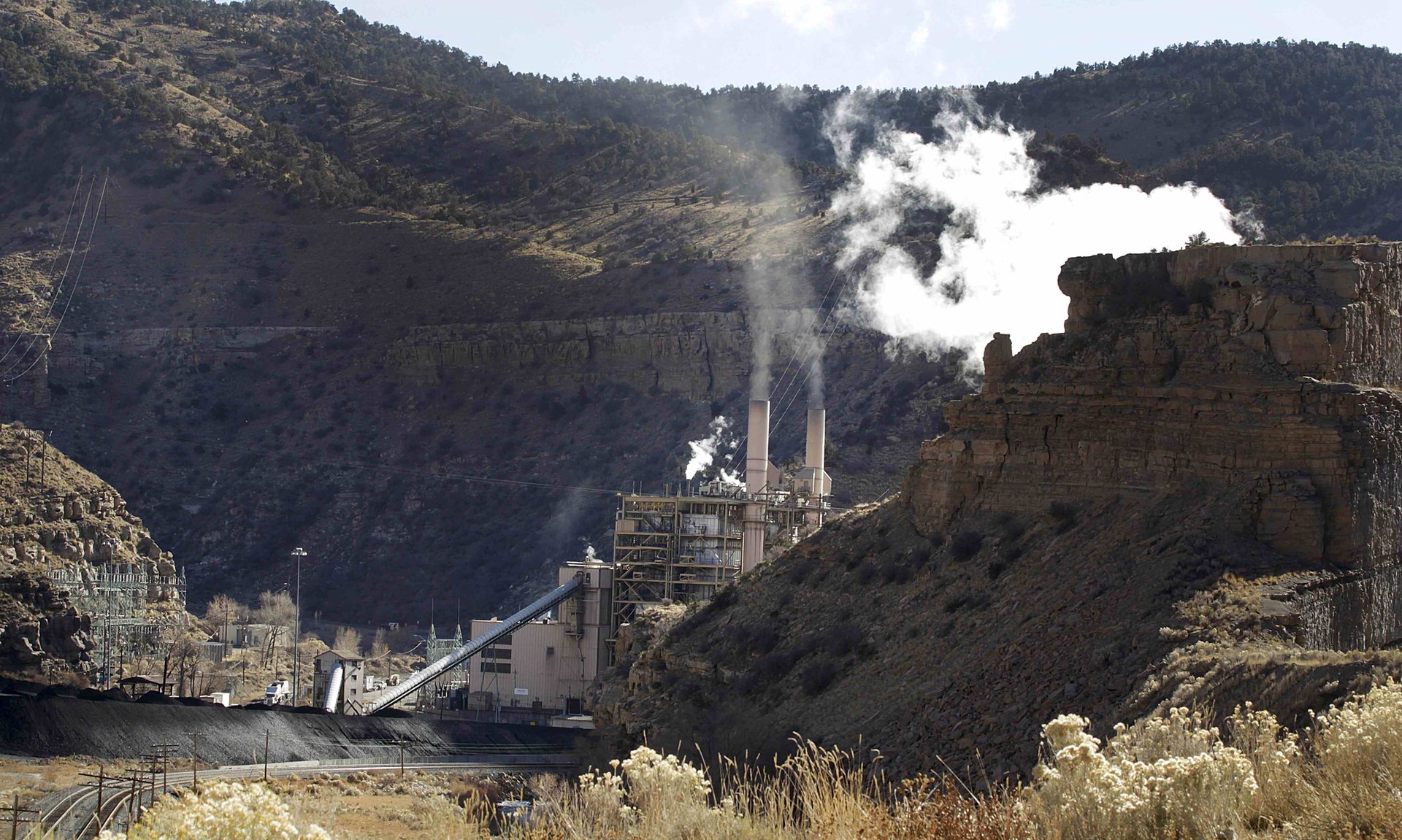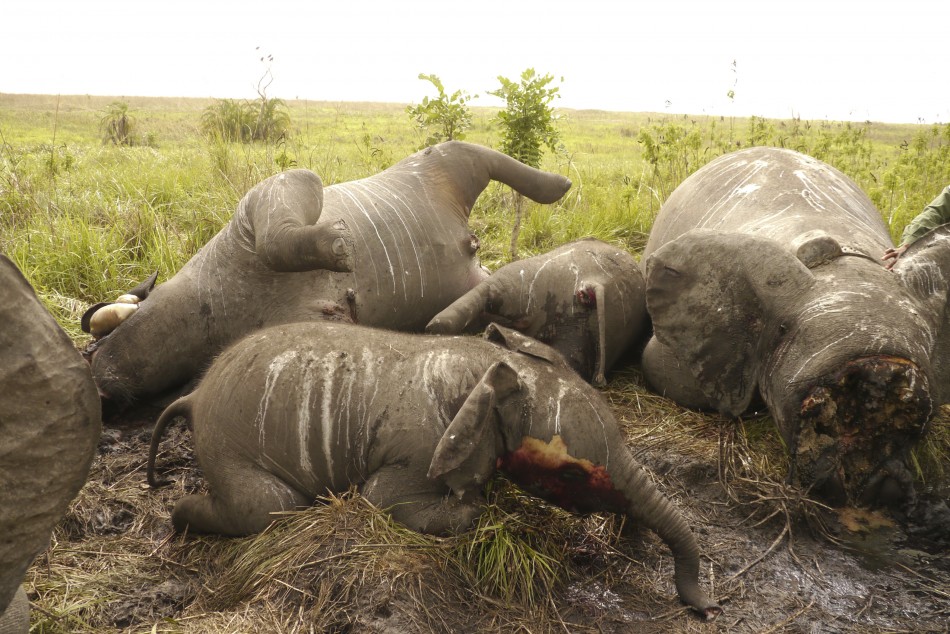World temperatures hit new high in 2016 for third year in a row
Alister Doyle Jan 18th 2017 10:33AM OSLO, Jan 18 (Reuters) - World temperatures hit a record high for the third year in a row in 2016, creeping closer to a ceiling set for global warming with extremes including unprecedented heat in India and ice melt in the Arctic, U.S. government agencies said on Wednesday. The data, supported by findings from other organizations,…

